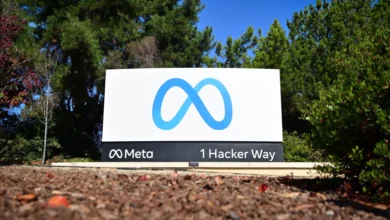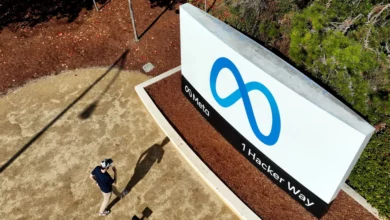When Dream TV presenter Dina Abdel Rahman was summarily dismissed from her morning show “Sabah Dream” last Sunday, it raised fears among many Egyptians that even after Mubarak, the private media may still be bullied by the ruling powers, just as it was before 25 January.
Over the last ten years, television presenters have normally been given at least a dressing down if an episode was deemed too critical of the government or risqué in some other way. The pervasive State Security Investigation Services regularly interfered; presenters would be threatened with removal and in some cases, shows would be pulled off the air.
While under the previous regime the state was responsible for this intervention, censorship post-25 January appears to come from the owners of the channels themselves.
The incident with Abdel Rahman exemplifies a different kind of concern, in which even at private satellite television channels that are considered among the freest in the Egyptian media, certain red lines cannot be crossed – even though they are being drawn by different methods. The brightest red line has always been any discussion of the military, but also included any direct criticism of the now-ousted president or first lady.
Private TV channels are often owned by prominent local businessmen, creating a strange marriage of business and politics. Dream TV is owned by Ahmed Bahgat, who is a construction tycoon; ONTV is owned by Naguib Sawiris, who heads telecom giant Orascom and recently founded a liberal political party; and Al-Hayat is owned by Wafd Party leader al-Sayyed al-Badawy, who made a fortune earlier in his career in the pharmaceutical business. This begs the question: Can conflicts of interest adversely influence editorial impartiality?
The owners of these private channels fear that their political or business interests could be threatened if they find themselves on the wrong side of the ruling powers, says Huweida Mostafa, a professor of media at Cairo University.
Additionally, the private media is relatively new in Egypt, largely emerging over the last decade under the auspices of the previous regime. During its short life, it has always been under political supervision, Mostafa says.
“We seem to have only one kind of private ownership here, which is businessmen. There is a connection to the political authority, or [the businessman] is funding [a politician] for influence or to further his interests,” she said. “This type of ownership can always be subjugated by the current political authority in power, even if it is indirect. These people are cautious and do not want a direct confrontation with the political powers.”
One such businessman is Bahgat, who reportedly never gave Abdel Rahman a reason for her firing from “Sabah Dream”, though it appears to have been sparked by an on-air discussion on 24 July about the military leadership.
Abdel Rahman had been highlighting an article in the independent daily newspaper Tahrir penned by Naglaa Bedeir, which was critical of comments made publicly by military commander Hassan al-Roweiny. Abdel Moneim Qato, a former military man, called into the show, leading to a severe discussion between him and Abdel Rahman about what could be covered on air. Qato called Bedeir a “saboteur” for having the temerity to criticize the military.
The show was cut off half way through and Abdel Rahman was called into Bahgat’s office, where she was told that she was being dismissed and would be replaced. This prompted a walkout by some of the production staff. Though Bahgat has since tried to reinstate them, Abdel Rahman and other staff members have refused to return.
“The shock is that this happened in independent media,” says Jihane Aboul Ella, one of the show’s producers who recently quit. “We expect this in state media, which is answerable to those who rule the country, but for this to happen in independent media, which played a big role in exposing corruption and participating in the revolution, I am surprised.”
Aboul Ella feels that this was a new form of censorship, removed from the direct intervention of the state, but more concerned with maintaining interests and not wanting to upset ruling powers. And while censorship was more direct under the previous regime, this new brand of self-censorship is more circumspect.
“After the revolution and talk of democracy, when something like this happens, it can only be censorship,” she added.“How could a presenter be on television and just respond to an official in a very professional manner and the reaction is one of anger and we got fired?”
Mostafa says that while private channels may have raised the bar for media freedom, they were never going to be the requisite trailblazer in that regard, even after 25 January. He attributes this reluctance to longstanding connections between media owners and the ruling elite, as well as the still-existent direct supervision of all media in Egypt by the ruling powers.
Another Dream TV host, Bilal Fadl, has announced that he will also be leaving the channel because of what happened with Abdel Rahman. He wrote in Tahrir newspaper on 27 July that Abdel Rahma was fired because of fear of the ruling military. He added that Egypt needed to be governed by the rule of law, so that “television channel owners like Ahmad Bahgat would not fear the wrath of the military authority and attempt to appease them [in this way]."
Aboul Ella insists that Bahgat is a respectable man who never interferes with the editorial policy of the channel, making his actions seem “very strange”.
“There was no reason given, so it seems at one stage there might have been interests at stake, or orders. I can’t say for sure, but this is what one assumes. We can only guess at this point,” he says.
Mostafa believes that considering these setbacks, private television programming has still not achieved full independence.
“We need a very visible and obvious separation between ownership and administration of media in Egypt to protect it from editorial influence,” he says. “That is still not the case.”
One channel operating differently is the newly launched Tahrir TV, which is owned by journalists, including long-time dissident Ibrahim Eissa and television presenter Mahmoud Saad.
Even here, though, self-censorship occasionally rears its head. During one recent show, Saad prevented activist Hossam al-Hamalawy from finishing his remarks about how the military should be subject to monitoring and supervision by the citizens represented in parliament.




